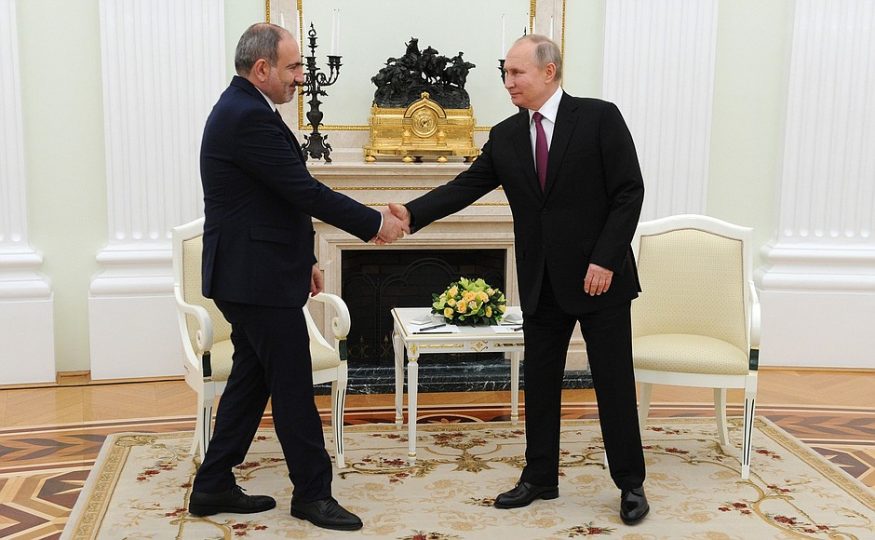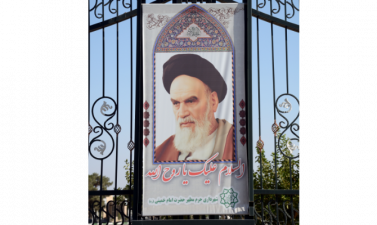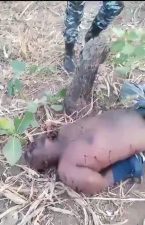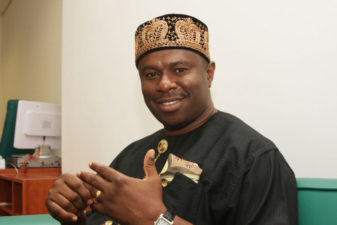Russian President Vladimir Putin is having talks with visiting Armenian Prime Minister Nikol Pashinyan in Novo-Ogaryovo on Tuesday.
Novo-Ogaryovo, written in Russian as Ново-Огарёво, also transliterated as Novo-Ogarevo, is an estate in the Odintsovsky District of Moscow Oblast, located by the Rublyovo-Uspenskoye Highway west of the city of Moscow. It operates as the suburban residence of the Presidsent of Russia, officially recognized as such in 2000, although, throughout President Vladimir Putin’s second tenure, he had spent progressively more time at Novo-Ogaryovo, so much so that it has been unofficially termed the de facto residence of the Head of State.
The Kremlin press service reported earlier that the two leaders plan to discuss current issues of bilateral relations od strategic partnership, as well as the implementation of the agreements on Nagorno-Karabakh of November 9, 2020, January 9 and November 26, 2021, including measures to restore economic and transport ties in the region.
The Armenian side expects that a possible peace treaty between Armenia and Azerbaijan will be in the center of the meeting’s agenda.
Apart from that, Putin and Pashinyan are expected to exchange views on the March developments around the village of Farukh in Nagorno-Karabakh.
The Russian defense ministry reported on March 26 that Azerbaijani troops had intruded into the zone of responsibility of the Russian peacekeeping contingents in Nagorno-Karabakh. Later, it was reported that Azerbaijan had withdrawn troops from the settlement of Farukh in Nagorno-Karabakh.
Program of the visit
Pashinyan arrived on a two-day official visit to Russia on Tuesday. Along with the talks with the Russian president, Pashinyan plans to meet with his Russian counterpart, Mikhail Mishustin, speaker of the Russian State Duma (lower parliament house) Vyacheslav Volodin, and speaker of the State Duma (lower parliament house) Valentina Matviyenko.
The Armenian prime minister also plans to visit Nizhny Novgorod.
Situation in Nagorno-Karabakh
The conflict between Armenia and Azerbaijan over the highland region of Nagorno-Karabakh, a disputed territory that had been part of Azerbaijan before the Soviet Union break-up, but primarily populated by ethnic Armenians, broke out in February 1988 after the Nagorno-Karabakh Autonomous Region announced its withdrawal from the Azerbaijan Soviet Socialist Republic. In 1992-1994, tensions boiled over and exploded into large-scale military action for control over the enclave and seven adjacent territories after Azerbaijan lost control of them. Talks on the Nagorno-Karabakh settlement have been ongoing since 1992 under the OSCE Minsk Group, led by its three co-chairs – Russia, France and the United States.
Renewed clashes between Azerbaijan and Armenia erupted on September 27, 2020, with intense battles raging in the disputed region of Nagorno-Karabakh. On November 9, 2020, Russian President Vladimir Putin, Azerbaijani President Ilham Aliyev and Armenian Prime Minister Nikol Pashinyan signed a joint statement on a complete ceasefire in Nagorno-Karabakh. Under the document, the Azerbaijani and Armenian sides stopped at the positions that they had held and Russian peacekeepers were deployed along the engagement line in Nagorno-Karabakh and along the Lachin corridor that connects Armenia with the enclave to exercise control of the ceasefire observance. Apart from that, a number of districts came over to Baku’s control.
Several months later, on January 11, 2021, the three leaders met in Moscow and reached an agreement on unblocking regional communications. Following this agreement, a working group at the level of deputy prime ministers was set up.
The three leaders met again in Sochi on November 26, 2021. They agreed to take steps to enhance stability and security at the Azerbaijani-Armenian border. They also agreed to set up a bilateral commission on the delimitation and demarcation of the border. The Russian side promised to offer its consultative assistance at the parties’ request.




